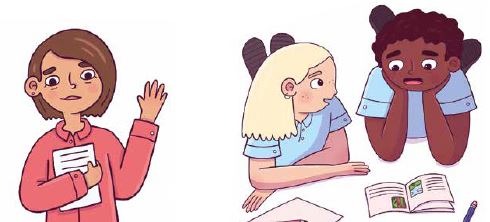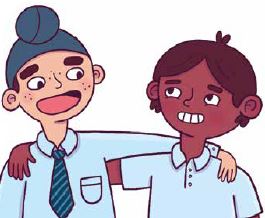Created on: 14 Nov 2019 | Last modified: 04 Apr 2023
'Rights' are things that every child or young person should have or be able to do to live safe, healthy and happy lives.
The United Nations says that all children and young people who are under the age of 18 years old have the same rights no matter who they are, what their parents do, what language they speak, what their religion is, whether they are a boy or a girl, what their culture is, whether they are disabled or not, or whether they are rich or poor.
The rights of all children and young people are listed in the UN Convention on the Rights of the Child (UNCRC) which almost every country in the world has signed up to. All of the UNCRC rights are connected to each other, and all are equally important.

The right to education is very important. All children and young people in the world have the right to go to school and to receive a good quality education.
Children and young people who have left their own country and arrived in a new country as migrants, and those who have had to leave their own country as refugees, also have the right to a good education.
Every child in Scotland has a right to a free place at school between the ages of 5 and 16. The law expects everyone to take part in education between these ages.
After age 16, young people can choose if and how they want to continue their education.
All children and young people in the world have a right to extra support with their education if they are disabled. In Scotland, children and young people, or their parents/carers on their behalf, have the right to ask for extra help and support with their learning in school when they need it, even if they aren’t disabled.
In Scotland, the Additional Support for Learning Act (2004) and the accompanying Code of Practice set out your rights as a parent/carer and the rights of your child to get the additional support they need in school. They also tell schools, local authorities and other agencies how to make sure this happens.
You can find out more here: enquire.org.uk/advice-for-parents
Children's education should be designed to help them to use their talents and abilities, and to help them live peacefully, to protect the environment and to respect other people.
All of the world's children and young people have the right to their own culture, religion and language, and to learn about their own family's history, background and beliefs. They have the right to learn about these things from their education.
At school your child will be able to find out and discover things in many areas of knowledge, and to learn new skills. They will be able to share their thoughts and opinions with others through writing, talking and artistic expression unless this would cause harm and distress to others.

All children and young people in the world have the right to choose their own friends. School gives many good opportunities to meet new people who are around the same age as them, from backgrounds which may be similar or different to theirs, and to make friends with them.